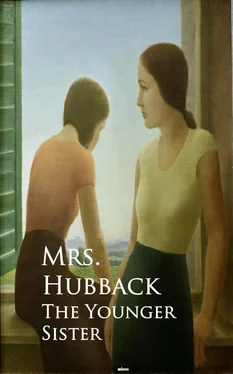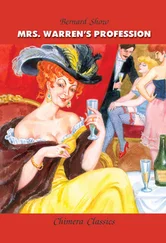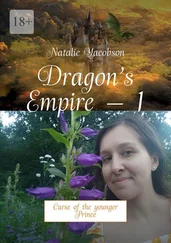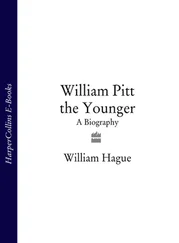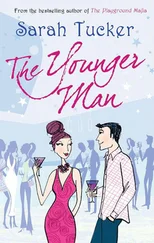Mrs. Edwards replied by begging they might not interrupt him in so necessary an occupation; and, with a formal bow, passed on—looking round anxiously to see whether her two young charges were following.
"Do you know him?" whispered Mary.
"No," replied Emma, in the same tone.
"It is Tom Musgrove," said Miss Edwards, a little louder, as they advanced further from the vicinity of his apartment.
"
Mr.
Musgrove," said her mother, with a peculiar emphasis.
Mary blushed and was silent.
CHAPTER II.
They entered the ball-room; it looked very cold and very dull; the candles as yet hardly lighted, and the fires yielding far more smoke than heat. Over one of these several officers were lounging; Mrs. Edwards directed her steps to the other, and seated herself on the warmest side; her two companions found chairs near her, Mr. Edwards having left them at the door of the ball-room, to seek out his old associates at the whist-tables. But it was all so new to Emma, that she did not feel any of the annoyance at their early appearance with which a more experienced young lady would have been afflicted. Everything interested her happy mind, and she even felt amused in ascertaining the number of lights, and listening to the scraping of the fiddles tuning in the orchestra. They had not been seated many minutes, when they were joined by a young officer, whom Emma immediately guessed to be Captain Hunter, and from the pleasure which the quiet Mary demonstrated at his addresses, she augured unfavourably for her brother's prospects.
She could not, however, accuse Mrs. Edwards of looking more kindly on the gay soldier than she seemed to do on the doctor's assistant: and had it been Sam himself, he could hardly have received a more frigid recognition than the formal and ungracious bow, which Emma witnessed. Captain Hunter showed no symptom of discouragement, but continued a low but eloquent conversation with Mary, the only part of which intelligible to her companions was an engagement for the first two dances; for these were the days of country dances, before quadrilles, waltzes, and polkas had changed the face of the ball-room. There must certainly be some connexion between the style of dress and the style of dancing prevalent in any particular generation. The stiff ruffs, the awful long waists and formal boddices of Elizabeth's reign were quite in keeping with a stately pavan; the loose attire and complete undress adopted by the courtly beauties of Charles the Second may be considered characteristic of the elegant but licentious style pervading their dances. The minuet matched well with the buckram, and rich brocade, and high head-dress which marked the era of the earlier Georges; whilst powder and hoops of course disappeared under the influence of the merry country-dance and cotillion. Perhaps at the present time the dresses, like the dances, partake more of the character of the latter Stuarts—graceful and bewitching; the habiliments full and flowing, the steps vivacious but tending to giddiness, with a near approximation to romping, and a great risk of inducing a
faux-pas
, or even a serious fall.
But all this is a digression from my story, and cannot possibly have passed through my heroine's mind, since, sixty years ago, the liveliest fancy would have never pictured an English ball such as we now see it. The accessions to the company at first few and at great intervals, so as to allow Emma time to notice the dress, manners, and appearance of each individual, gradually became so much more numerous, as to prevent her seeing or observing more than half of them. Dancing, however, was delayed because the Osborne Castle party were expected, and the stewards, of course, were waiting for Miss Osborne to open the ball. At length, a bustle in the assembly-room called Emma's attention to the door, from a very remarkable dress which she had been for some minutes contemplating, and the important group made their appearance. Mary pointed them out to her young companion: there was Lady Osborne, with her splendid diamond necklace; her son and daughter, and her daughter's friend, Miss Carr; her son's late tutor, Mr. Howard, his sister, and her little boy, a child apparently about six years old. The last mentioned lady, a widow with pleasing manners and a very agreeable countenance, happened to seat herself near Emma, whose attention was speedily called to the little boy, by the extreme impatience he evinced for the dance to begin. His mother, turning to a friend beside her, observed,
"You will not wonder that Charles is so eager for his first dance, when you hear how he is to be honoured; Miss Osborne has promised to dance with him herself, which is very good-natured."
"Oh yes," cried Charles, "she has promised to be my partner ever since Saturday, indeed as long as I knew I was coming to the ball."
Just at this moment, Miss Osborne stepped hastily forward, and addressing the little boy in a hurried manner, said:
"Charles, I am very sorry, but I find I cannot keep my engagement with you this time; I must dance with Colonel Miller, but another time, the next dance, perhaps, will do just as well for us I dare say."
She then hastened away, without waiting to witness the effect of her communication on the little fellow, whose hopes and enjoyment seemed to vanish together. Disappointment was painted on every feature, and his swelling heart appeared about to prompt a shower of tears, with which a proud desire to appear manly was maintaining an ineffectual struggle. His mother, who seemed little less distressed, endeavoured to soothe his grief, and held out vague hopes of better luck another time; when Emma, who really pitied him, and was quite interested by the appearance of both, said with the most obliging air:
"If you will accept me as a substitute for Miss Osborne, sir, I shall be most happy to dance with you the two next dances."
It would be difficult to tell, of the mother or son, which countenance looked the brightest, or whose eyes showed the greatest pleasure at this kind offer: and the couple took their place in the dance with equal satisfaction, Emma being perfectly contented with her juvenile partner, whilst he was all anxiety to acquit himself well to do her honor, and especially intent on running his fingers as far as possible into the points of the new gloves which he had received from his mother on quitting her side, with sundry injunctions to keep them on.
Emma had been much amused when the Osborne party entered, to see Tom Musgrove accompanying them; having, no doubt, from the knowledge she had previously acquired, of his having been long in the house, that he had been waiting outside the door, in order to join them, and appear as if he formed one of their party. She now discerned him standing opposite to herself by the side of Lord Osborne; who, she learnt from casual remarks amongst ladies near her, never danced himself, and was now preventing or dissuading Tom Musgrove from doing so either. Lord Osborne was a remarkably plain young man, barely endowed with the air of a gentleman, and it seemed to observers, as if the time spent in the ball-room were one of actual penance to him. His principal occupation appeared to consist in regarding Emma with a broad, unmitigated stare, which rather disconcerted her, and made her exert herself to converse with Charles, that she might not seem to mind it. It was not easy for her to decide what drew his attention so fixedly on herself; she thought, perhaps, that he wondered at her presumption in standing up with one of his party; or that he was criticising her style of dress; or censuring her dancing; she wished with all her heart that he could find some other subject for his speculation, and was quite relieved at the gradual change of place which dancing produced. Charles was very happy, and spoke his feelings in rather an audible whisper, when addressing Mr. Howard, as that gentleman was passing near him, he said:
Читать дальше
